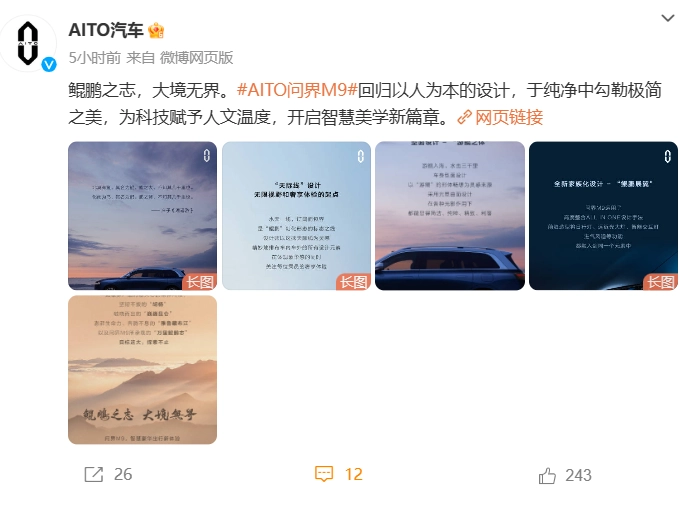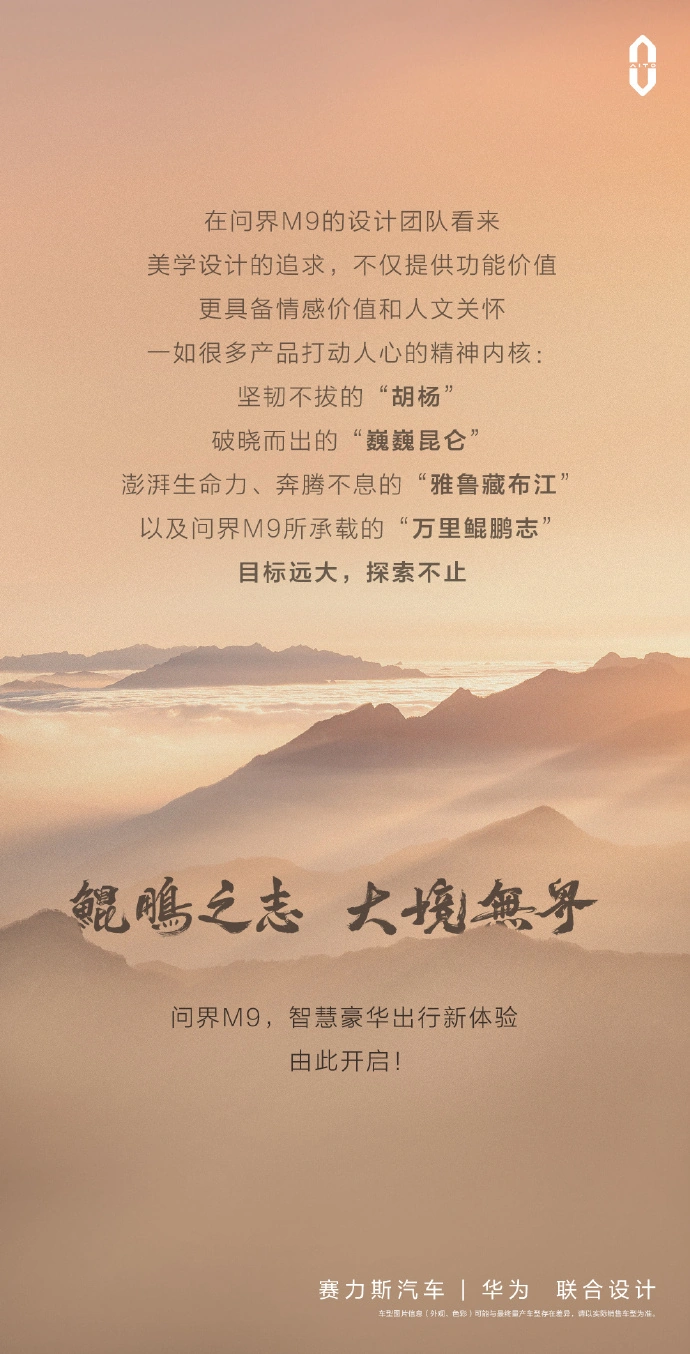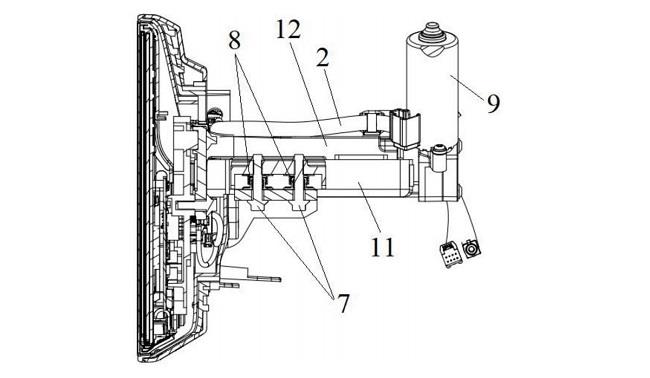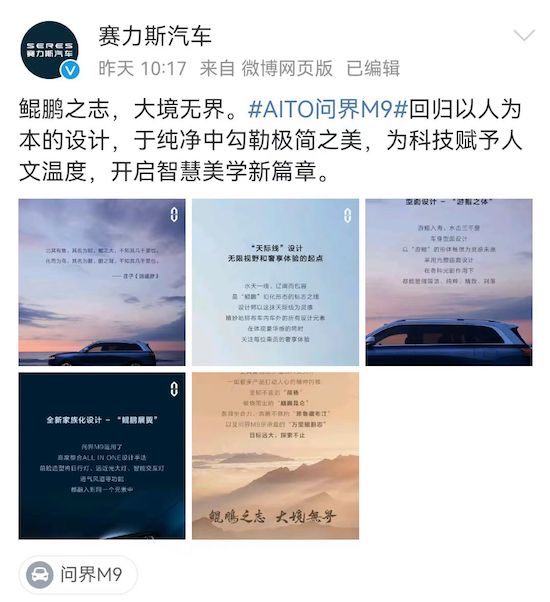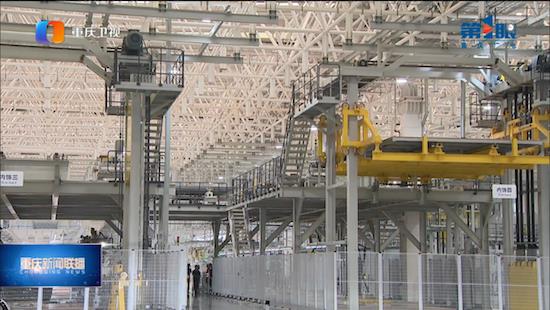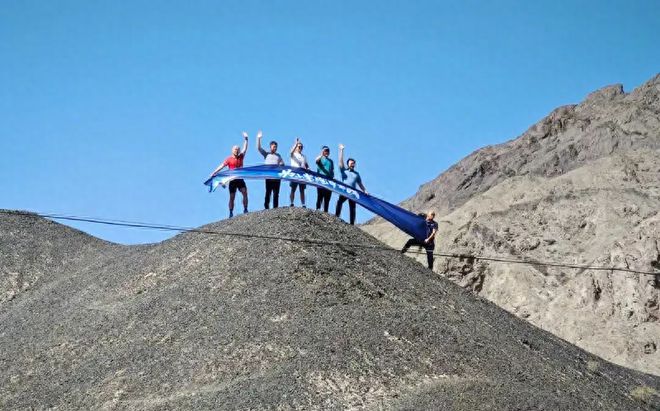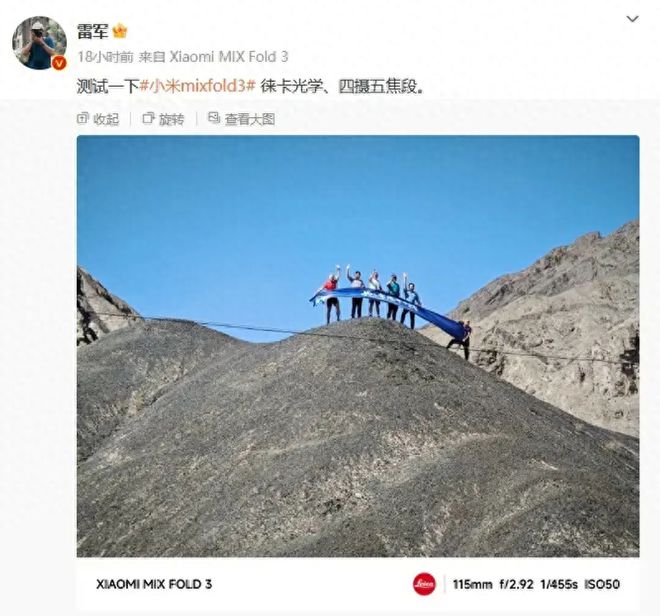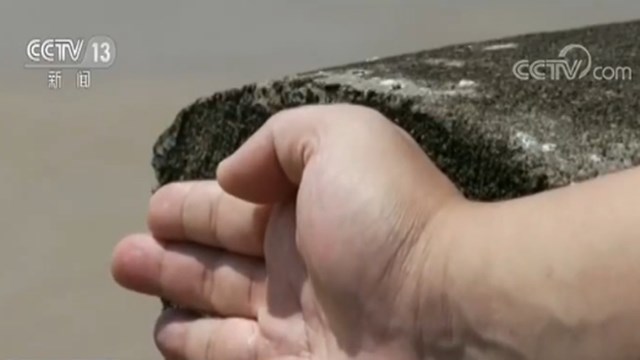Yu Chengdong said that the M7 hanged a million-level class, and He Xiaopeng wanted to throw shoes.
May 28th, the first day of Shenzhen Auto Show.
In the afternoon, at the "Pioneer Dialogue on Future Automobile Innovation and Integration" officially held by the auto show, there was probably the most intriguing scene of this auto show:
「If it is in committee of 100, Lao Yu said, it is estimated that there will be a lot of shoes thrown up below; Just now, Lao Yu said so, and I kind of want to throw a shoe up.」。
This passage comes from He Xiaopeng, and "Lao Yu" is Yu Chengdong.
When He Xiaopeng said that he wanted to throw Yu Chengdong shoes, he meant that Yu Chengdong had repeatedly "set up the flag" during his speech, or made very exciting speeches by diss traditional car companies and suppliers, such as ".The M7 will completely surpass millions of luxury cars such as Toyota Erffa and Lexus LM.」。
In fact, He Xiaopeng’s speech this afternoon was not peaceful. It was also a roar of gunfire, and traditional car companies, new cars and autonomous driving technology companies were all within his firepower.
Look at the car at the auto show, but the auto show is not just about cars. Today, let’s take a look at how the two giants in the field of smart cars portray the general trend of competition in the new automobile era in words.
This is the core evaluation given by Yu Chengdong to the M7, which will debut in June and be delivered in July.
He said that the goal of the M5 project is to benchmark millions of luxury cars, and when it comes to M7, it will naturally become ".Beyond the million-class luxury car」。
Are there any specific competitors? Yes,Toyota Erffa, Lexus LM.
These two models almost dominate the market of luxury MPVs above one million. It can be said that AITO is very confident-but wait, these two models seem to be MPVs?
Yu Chengdong explained that M7, as an SUV, will surpass all luxury SUVs in the million-class and luxury MPV. Moreover, the M7 will not be positioned as a large SUV.Its appearance is very compact, and its interior space is very large. It is a six-seat SUV and very comfortable.」。
How comfortable is it? His exact words were ".We have many new functions, which are the first in the world for leaders and bosses to rest comfortably, even surpassing all luxury SUVs and MPVs.」
In addition, Yu Chengdong also officially announced the launch date of the M5 pure electric version: September, "trying to let everyone drive this car during the National Day".
In addition to preheating M7 and promoting M5, Yu Chengdong also talked about many stories related to the world, and the smart car industry.
First of all, he said that his M5 had been in Shenzhen for so long that he "didn’t refuel once" because both the company and the home can recharge. However, he came back from his hometown for more than 1,400 kilometers during the Chinese New Year. He said that the M5 ran farther than all pure trams, "because I can refuel".
Mentioned, Yu Chengdong stressed that "eating alone" is definitely not the idea of entering the automobile industry. "If it were this idea, we would not have been killed by the United States, and we would have been ruined by others. When making chips, I believed in the global division of labor too much, but there is no regret medicine to sell in the world. "
Secondly, when talking about HUAWEI Inside and Zhixuan, Yu Chengdong said that these two cars were not "made".
Bound M5
However, compared with HI, Zhixuan belongs to deeper cooperation. From the aspects of exterior design, interior design, intelligent cockpit, electric drive system and even sales, Zhixuan partners can cooperate with them.
When talking about "cooperation", Yu Chengdong mentioned that he once drove a car made by his partner. After driving,"Ten thousand alpacas are running in my heart, and I want to swear. It’s a trick design."So which partner will be here?
Finally, regarding smart cars, Yu Chengdong believes that most traditional car companies will eventually die like mobile phones, and a number of new car companies will rise, even though many people can’t imagine this day at all.
Just like who would have thought that Nokia, whose revenue and profit were equivalent to the sum of the last few, would disappear quickly.
As for the reason of driving the wave, Yu Chengdong mentioned a point: At present, the R&D expenses of new car companies (and) are not big, but the software is an important part of the R&D expenses.
There are 10,000 ways to interpret the shoe that He Xiaopeng wanted to throw to Yu Chengdong, but what remains unchanged is that he did say this sentence, and the content of this sentence is indeed "I want to throw shoes to Yu Chengdong".
By the way, He Xiaopeng was throwing shoes almost all the time.
For example, throw it to autopilot technology companies.
He Xiaopeng said that he always believed that L2 to L4 was a gradual process. He made an analogy:"Today, many L4 companies can shoot it in a video, which looks cool. In the second year, you will find that it is still the same, and it will be the same in another year. 」
He believes that a major prerequisite for realizing autonomous driving should actually be "full scene."
On the way to realize the whole scene, it is equivalent to completing the gradual progress from L2 to L4:"Can you open a few roads in the city? Can it be opened in the whole city? Can we open it in the suburbs? Can you cross this city and China to open overseas? 」
In addition to no geographical restrictions, He Xiaopeng also firmly stated that true autonomous driving should have no environmental restrictions. look like"Without GPS, no signal, you can drive in glaciers and snow, and you must drive in the whole area before you can drive automatically.".
Apart from the level of autonomous driving, He Xiaopeng feels that many autonomous driving companies ignore safety.
He said that the car safety factor was designed according to the occurrence of a serious accident in the fifth hour of 10, and then he calmly "killed people": "If you have driven a car, you will know that the fifth power of 10 is not enough at all, because the drivers are uncontrollable and the roads are changing every day. 」
Or, for example, throw it into a pit that you have stepped on in the past.
He Xiaopeng mentioned that he was "cheated" by public opinion at that time: when Tucki was just founded, many people said, "When will you achieve 100,000 vehicles in Tucki?".
He said that at that time, he thought that after accumulating 100,000 vehicles, it proved that this car company already had a good scale and ability. But it was only after he really achieved it that he discovered that 100,000 vehicles were only one of the small milestones, "just one pass".
Finally, mention a number: 30 billion.
He Xiaopeng said that when he said that he wanted to build a car and sell it, he needed at least 20 billion yuan. Now, Tucki has started to go to sea, and he said that going to sea needs at least an extra 30 billion yuan.
In other words, Xpeng Motors needs 50 billion yuan to realize He Xiaopeng’s dream of internationalization.
Do you think it’s much?
In the past decades or twenty years, the atmosphere in the automobile industry was not like this.
Many people have seen the video of BMW spoofing dieter zetsche’s retirement. After returning home in an S-class, dieter zetsche excitedly drove a BMW out of the street-this is already the most intense "diss" in the traditional automobile industry, not even a diss.
Comparing the level of advertising copy is that the way of "arguing" in the automobile industry in the past is completely different from the way of "losing shoes" at every turn.
Why? Because the order is not stable, because the table is being shuffled, it is not known which player will be eliminated, and there is no dealer like Toyota Volkswagen BBA. And because the new era of automobiles is socialized and labeled,
So be sure to talk about the topic, be sure to be hot, and be sure to compare others; So we must fight, not lose, let alone lose.
Debate among Confucianism, in a sense, also represents a hundred schools of thought contend.
Author: Yu Fei, source:Electric planet News (ID:glxsl2017), the original title: "Yu Chengdong said that the M7 hanged a million, and He Xiaopeng wanted to throw shoes."
